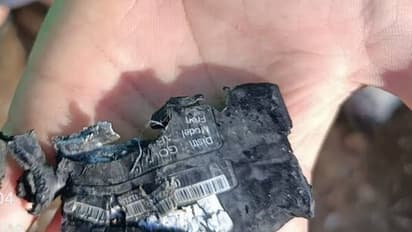Device explosions rock Lebanon: Did Israel use shell companies to booby-trap Hezbollah pagers?

Synopsis
A recent New York Times report has claimed that Israel used shell companies to covertly supply pagers laced with explosives to Hezbollah.
In a chilling escalation of the decades-long conflict between Israel and Hezbollah, a series of coordinated explosions involving pagers and walkie-talkies has devastated Lebanon. On Tuesday, just after 3:30 p.m., pagers across the country began emitting alarming beeps, followed by a sequence of violent explosions. The blasts, which claimed at least a dozen lives and left over 2,700 people injured, were followed by further explosions the next day, which killed 20 more individuals and wounded hundreds. The attacks have triggered widespread chaos and fear in Lebanese cities, with a significant portion of the casualties being civilians, including children.
Although Israel has not officially confirmed its involvement, current and former Israeli defense and intelligence officials, who spoke to The New York Times on condition of anonymity, suggest that the attacks were a product of Israeli ingenuity and covert operations. A recent NYT report has claimed that Israel used shell companies to covertly supply pagers laced with explosives to Hezbollah.
According to the NYT report quoting three intelligence officers briefed on the operation, at least three shell companies were involved in this covert strategy. BAC Consulting, a Hungary-based company that manufactured the pagers, has been identified as an Israeli front company. Intelligence sources claim that BAC Consulting was used to produce thousands of pagers, which were then shipped to Lebanon starting in 2022.
The decision to increase the shipment of pagers was influenced by a directive from Hezbollah’s leader, Hassan Nasrallah. “You ask me where is the agent,” Nasrallah reportedly told his followers in February. “I tell you that the phone in your hands, in your wife’s hands, and in your children’s hands is the agent.”
“Bury it,” he ordered. “Put it in an iron box and lock it.”
Following Nasrallah’s denunciation of cellphones as operationally unsafe and his promotion of pagers, Hezbollah reportedly placed larger orders for these devices.
"Israeli intelligence officials saw an opportunity," reported the NYT, further stating, "Even before Mr. Nasrallah decided to expand pager usage, Israel had put into motion a plan to establish a shell company that would pose as an international pager producer."
The report claimed BAC Consulting, a company that appeared to be based in Hungary and contracted to produce devices for the Taiwanese firm Gold Apollo, was actually an Israeli front. Quoting intelligence officers, the report further alleged that at least two additional shell companies were established to conceal the true identity of those behind the pagers—Israeli intelligence officers.
While BAC Consulting did serve ordinary clients, producing standard pagers, its primary and most significant client was Hezbollah, the report noted. The pagers intended for Hezbollah were reportedly uniquely modified, with batteries containing the explosive PETN. The pagers began arriving in Lebanon during the summer of 2022, initially in small quantities, as per the report. However, production surged following Hezbollah leader Hassan Nasrallah's condemnation of cellphones.
The attack on Tuesday began with the pagers emitting distress signals, designed to mimic communications from Hezbollah's leadership. As operatives and civilians alike responded to these alerts, the concealed explosives detonated, causing widespread destruction. Witnesses reported seeing people thrown from motorcycles and collapsing in agony as smoke billowed from their pockets. The violence extended beyond Hezbollah members, affecting ordinary citizens and causing a significant number of casualties among bystanders.
The scale of the devastation was compounded by the subsequent explosions on Wednesday, which targeted walkie-talkies and led to further casualties and injuries.
In the aftermath of the explosions, Hezbollah confirmed that some of its fighters were among the dead, but the majority of casualties were civilians. The attacks have significantly strained Lebanon's medical infrastructure, with hospitals overwhelmed by the influx of wounded individuals. The chaos intensified when a second wave of explosions erupted during a funeral in Beirut’s southern suburbs, causing further panic and prompting mourners to flee and seek shelter.
Check the Breaking News Today and Latest News from across India and around the world. Stay updated with the latest World News and global developments from politics to economy and current affairs. Get in-depth coverage of China News, Europe News, Pakistan News, and South Asia News, along with top headlines from the UK and US. Follow expert analysis, international trends, and breaking updates from around the globe. Download the Asianet News Official App from the Android Play Store and iPhone App Store for accurate and timely news updates anytime, anywhere.